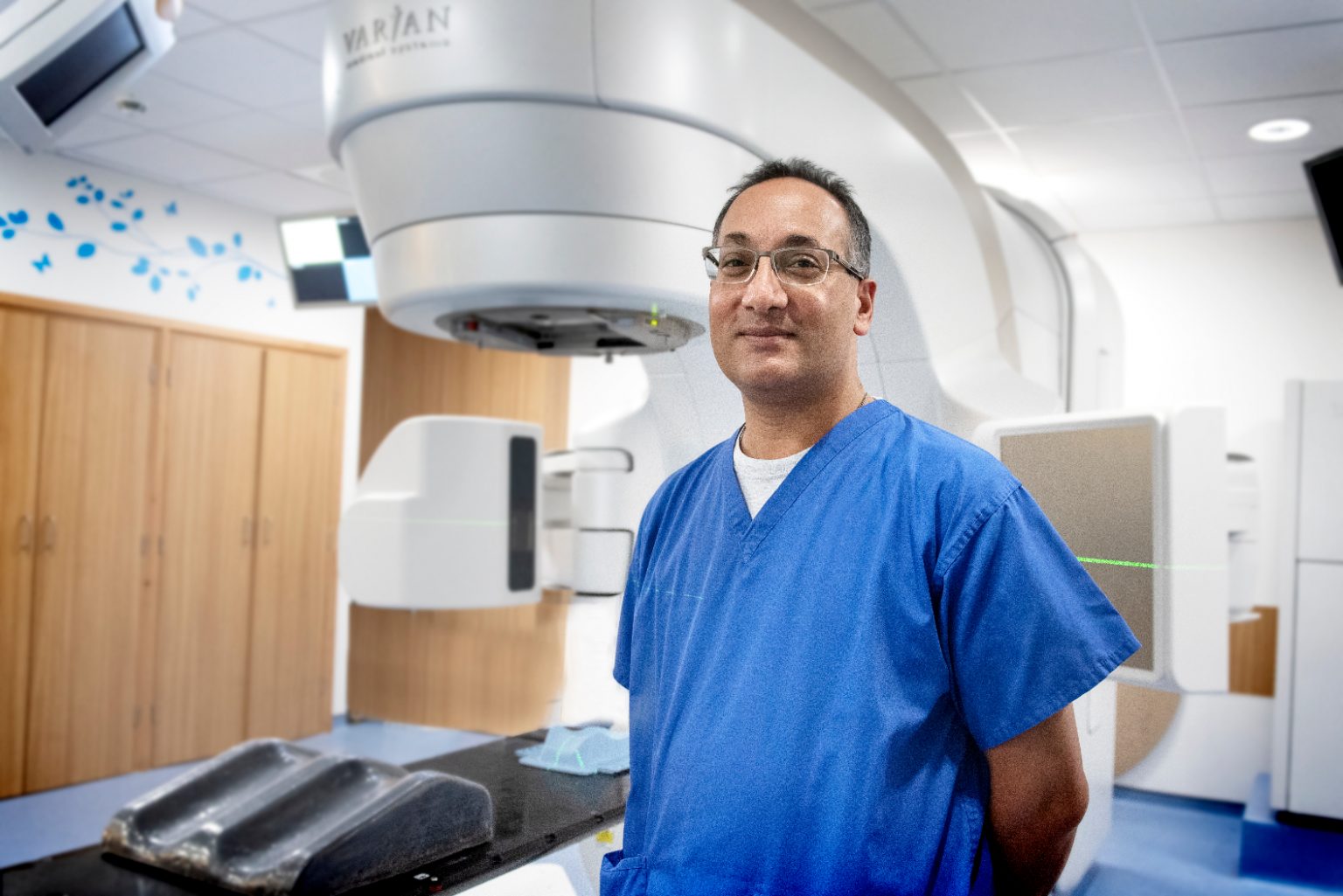
In the latest round of the Artificial Intelligence in Health and Care Award, 38 projects from across the UK will share £36m to test state-of-the-art AI technology.
The AI Award is making £140 million available over four years to accelerate the testing and evaluation of artificial intelligence technologies which meet the aims set out in the NHS Long Term Plan.
The two successful Centre-led projects use AI to speed up radiotherapy treatment planning, and to predict brain tumour growth.
AI to differentiate tumour and healthy tissue on cancer scans
The Cambridge University Hospitals (CUH) radiotherapy AI project has grown out of ‘Project InnerEye’ – an AI toolkit created by Cambridge-based Microsoft Research collaborating with clinicians at Addenbrooke’s and researchers at Cambridge University.
Over the next year, CUH will work with University Hospitals Birmingham NHS Trust to leverage Microsoft Project InnerEye’s open-source AI toolkit to differentiate tumour and healthy tissue on cancer scans, called ‘segmenting’, prior to radiotherapy treatment.
The aim of this AI Award project is to evaluate how this could save clinicians’ time, reduce the time between the scan and commencing treatment, and scale this to four NHS Trusts.
Project lead Dr Raj Jena, CUH oncologist, Neuro-Oncology Programme member and CRUK RadNet Cambridge co-lead, said: “AI has the capacity to deliver so much behind-the-scenes routine work, enabling doctors to spend more time face-to-face with patients, and shortening the time that patients have to wait for treatment.
“We believe this is first time an NHS hospital has trained its own medical imaging AI for its own patients and our aim is to assist other radiotherapy departments to use the models for their patients.”
Up to half of the UK population will be diagnosed with cancer at some point in their lives. Of those, half will be treated with radiotherapy, often in combination with other treatments such as surgery, chemotherapy, and increasingly immunotherapy.
Radiotherapy is most effective when treatment takes place as soon as possible. However, segmenting the tumour targets and healthy tissue on image scans is a key step that is currently performed manually by doctors, taking several hours per patient.
Microsoft's recent peer-reviewed research paper in JAMA Network Open shows that clinicians could segment prostate, and head and neck cancer images up to 13 times faster when using InnerEye machine learning assistance, with an accuracy similar to that of human experts.
Monitoring slow-growing brain tumours
Certain types of brain tumour are deemed low-risk, as they grow so slowly.
This project, led by Stephen Price, CUH Consultant Neurosurgeon and Neuro-Oncology Programme co-lead, aims to develop AI to measure the volume of tumours from scans, and learn which are at risk of growth, to ensure those patients are monitored more frequently, and others can be reassured that their tumour is lower risk.
Mr Price said: “There are a lot of patients who live with slow growing brain tumours and the worry that their tumour may grow. We want to use AI to more accurately monitor them and to predict which patients we need to watch carefully and which we can reassure."
Announcing the winners of the second wave of the NHS AI Lab’s AI in Health and Care Award, Health and Social Care Secretary, Matt Hancock said:
“AI has the potential to completely revolutionise every part of how we approach healthcare, from how we diagnose diseases and the speed at which our doctors and nurses deliver treatments to how we support people’s mental health.
“The 38 projects we are backing reflect the UK’s trailblazing approach to innovation in the healthcare sector, and could help us take a leap forward in the quality of care and the speed of disease diagnoses and treatment in the NHS.
“Confronted with this global pandemic, our tech sector has risen to the challenge and upended how we do things through innovations to support people to test from home, complete remote consultations and diagnose issues safely.”
The AI Award is one of the programmes that make up the NHS AI Lab, led by NHSX and delivered in partnership with the Accelerated Access Collaborative (AAC) and National Institute for Health Research (NIHR).
















